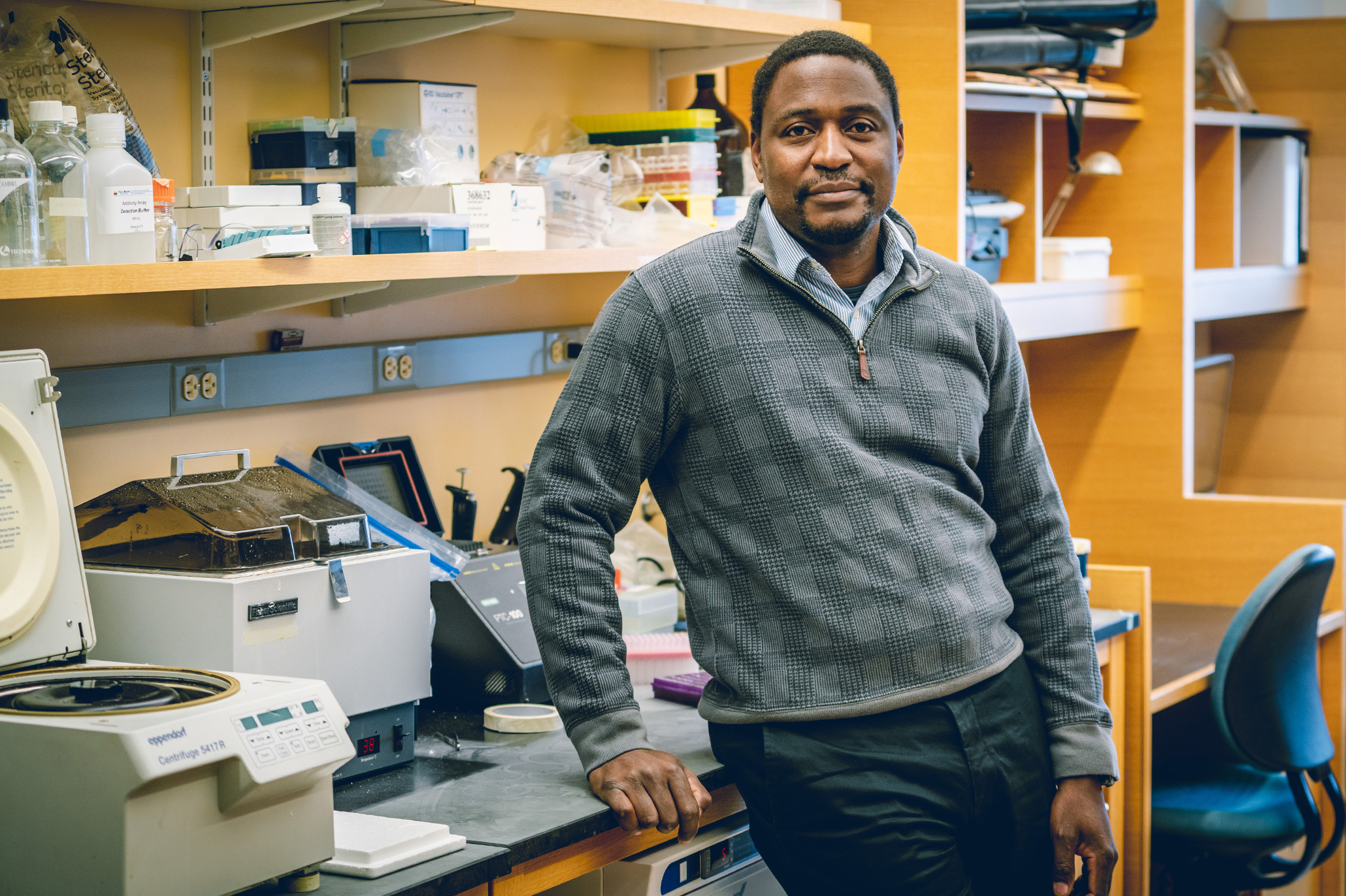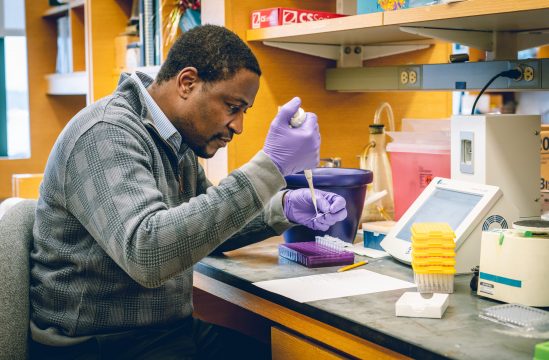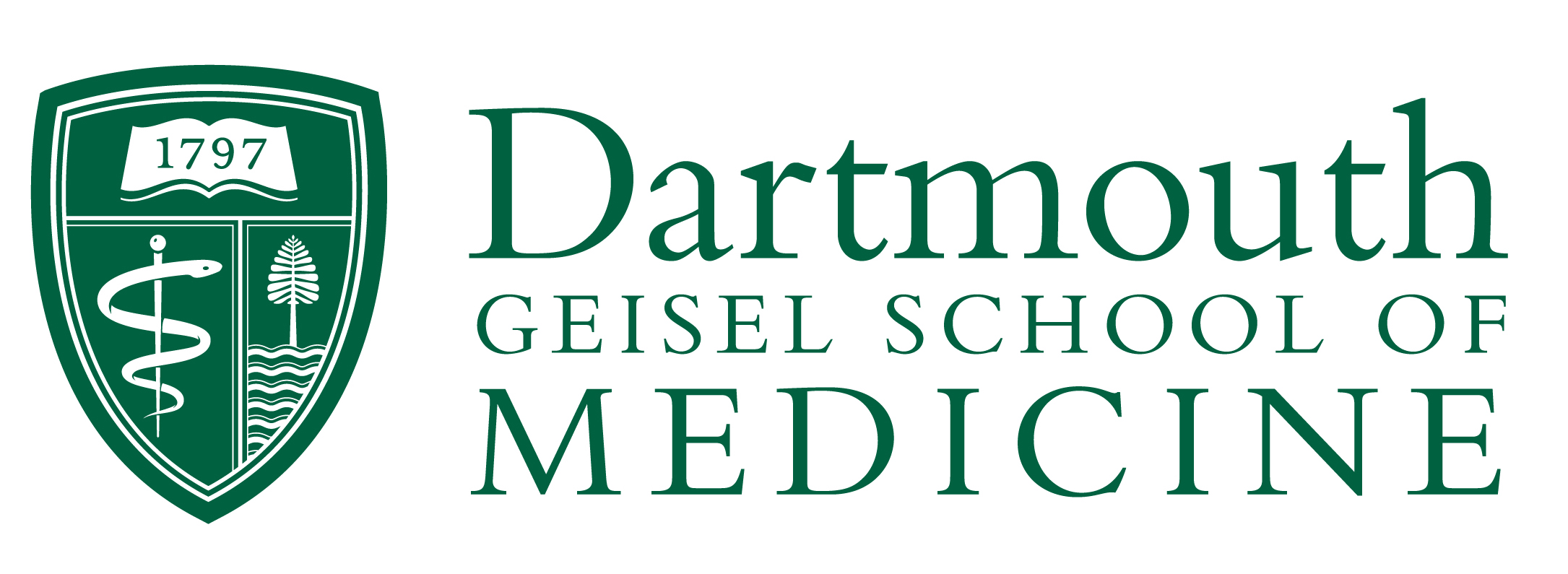
As a young man growing up in Zimbabwe, Rodwell Mabaera, Guarini ’08, MED ’10, an assistant professor of medicine at Dartmouth’s Geisel School of Medicine, excelled in his classes and developed a range of academic interests—especially those involving biology, mathematics, and chemistry.
He liked math so much, in fact, that upon graduating from high school he accepted a six-month internship to train as an actuary with a major insurance company that also offered to pay for his college education.
But then, serendipity intervened. Mabaera’s supervisor had a connection with someone who worked for the Oak Foundation, a human rights organization that partners with Colby College in Maine to provide scholarships to deserving international students every year.
“I didn’t feel ready to commit to a specific career path at that point,” he remembers, “and I thought, ‘This sounds like a great opportunity.’ Before I knew it, I was applying and got into Colby College and I was up in Maine.”
Making the transition from living in the sub-tropical climate of southern Africa to northern New England’s four seasons, was “a bit of a shock,” geographically and culturally. “Waterville, Maine is about one-tenth of the size of my hometown of Chinhoyi, and then there were the winters,” he says, laughing.
But Mabaera grew to love Colby’s close-knit, supportive community—an atmosphere that reminded him of Chinhoyi—majoring in math and chemistry and competing on the school’s cross-country team. “One thing that made a big difference was having a host family (Candace Hill and Steve Collins and their two boys) who were very supportive,” says Mabaera, who remains close to them.
“Through my years at Colby, one returning theme was that Zimbabwe was going through a lot of strife and health care was falling apart,” he says. “It just solidified for me that idea of, ‘Oh, I could go into medicine and do research, and apply what I learn to actually make a difference back home.’”
While he was accepted into dual-track (MD-PhD) programs in different areas of the country, Mabaera decided to stay in New England. “The big-city programs just didn’t do it for me,” he says. “I needed a place that kept that ideal of community and Dartmouth fit the bill—it felt more welcoming and, of course, it’s a great school and a great program.”
Early in his MD-PhD track at Dartmouth, Mabaera thought of studying infectious disease but instead joined a project on sickle cell disease at the invitation of Christopher Lowrey, MD, a hematologist at Dartmouth-Hitchcock (D-H) interested in studying the disease, common to areas like Zimbabwe.
“That was my introduction to the world of hematology and oncology, which would end up being the emphasis of my work as a physician-scientist,” says Mabaera, who considers Lowrey, Geisel researcher Randy Noelle, PhD, a professor of microbiology and immunology, and D-H hematologist Kenneth Meehan, MD, a professor of medicine at Geisel, among his most important mentors through the years.
After earning his PhD in pharmacology and toxicology from Dartmouth in 2008 and his MD in medical oncology in 2010, Mabaera completed both his residency in internal medicine (2012) and fellowship in hematology/oncology (2016) at D-H.

Today, as a member of Dartmouth and Dartmouth-Hitchcock’s Norris Cotton Cancer Center, his area of focus as a medical oncologist includes providing care to patients with genitourinary (bladder, kidney, prostate, and testicular) cancers.
As an investigator, he’s working with Noelle and other colleagues to better understand how the immune system interacts with cancer cells in tumors. “We’re particularly interested in determining how key components within the immune system, such as microphages—immune cells that play a pivotal role in tumor growth—can be leveraged to boost the immune response to cancer in patients,” he explains.
All along, he has stayed connected to his home country. “I try to get back every other year,” says Mabaera, who is now juggling the happy demands of a young family (with two children) with his busy professional life.
“A year ago, I spent about two weeks or so in one of the hospitals in Zimbabwe, just doing general medicine and training medical students,” he says. “I’m not sure I make a lot of difference when I go, but I feel like the few people that I see really appreciate the time I can give them, in a system with a severe shortage of doctors and they have all of these problems going on because of the economic crisis. Just being able to sit with someone and tell them about your struggles can be healing.”
Recognizing and appreciating the differences of others has been a long-held value of Mabaera’s. That’s why he has been actively engaged in initiatives that promote diversity and inclusion at Dartmouth—from helping Geisel recruit students of color while a medical student to serving on Geisel’s Diversity Council to joining more recent efforts to improve diversity within the Department of Medicine and the Norris Cotton Cancer Center.
“Across our campuses, there’s some diversity—not as much as one would hope—but it’s there, and by in large, we live in a very supportive community,” he says. “But once you leave that ‘bubble,’ if you will, there’s all sorts of issues that can come up. I think one of the great opportunities Dartmouth has is to show the broader communities that there is big value to having a diversity of people, of opinions, and of experiences.”
While always important, the work is especially timely given the turmoil and unrest that rippled across the country this past year, culminating in the attack on the Capitol in January. “When we are able to sit at the table and talk about what we have in common, as Americans and as humans, while respecting our differences,” says Mabaera, “that’s, I think, when we can move mountains.”




